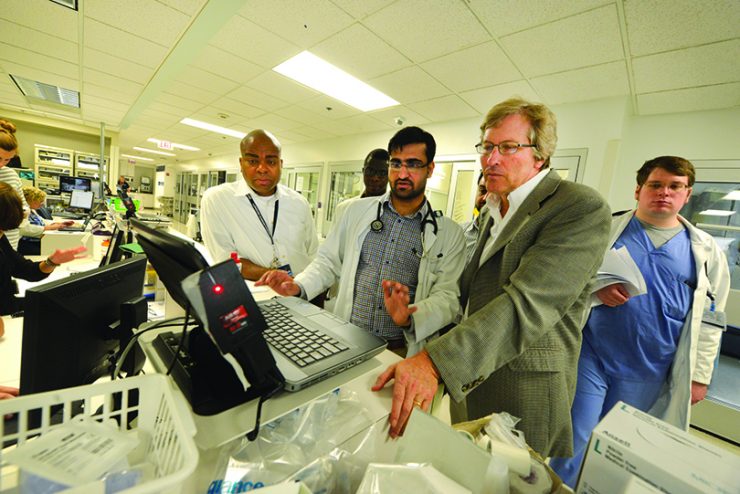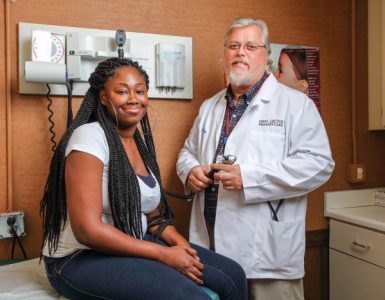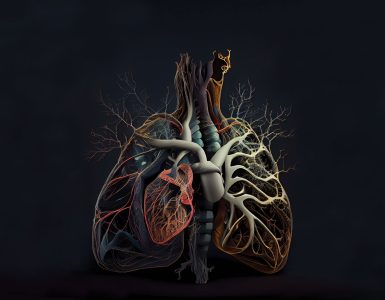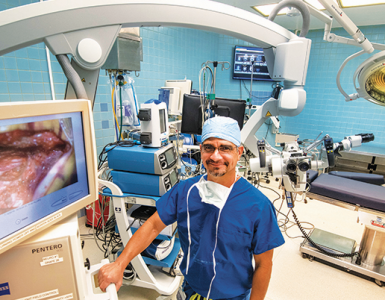We talked in these pages last time about leadership and the future of the Medical College of Georgia. Some of my earliest thoughts and frankly the ones that kept me up at night in my earliest days as dean were about leadership. As a longtime chair of neurology here, I had long been a member of the leadership team but not ultimately responsible for where we were headed. It was easier for me then to critique and to question what was and what wasn’t.
Sitting in the dean’s chair definitely gives you a new and broader perspective. You have the opportunity to really get to know the exceptional people and work here but you also have a broader perspective on the foibles.
Like a giant chess game, we move people into positions, always thinking/hoping it’s a great move. The reality is that probably the best we can do is find ourselves more often right than wrong.
I feel very right about some of the key leadership decisions we have made since the first of this year. They include new chairs of Medicine, Physiology and Neurology as well as the director of the Georgia Cancer Center.
While I guess the buck does stop with me now, I am very grateful to have so many great colleagues here to provide perspective as we make these important decisions for MCG’s present and future. I value and seek the counsel of many, but chief among those are Dr. Doug Miller, a cardiologist, vice dean for academic affairs and former dean; Dr. Vaughn McCall, a psychiatrist, department chair and MCG’s executive vice dean; and Lee Ann Liska, executive vice president for health affairs and CEO of Augusta University Medical Center. They are all very different personalities but, like you our alumni, they share a common desire for MCG’s success. I thank them and many of you for the wisdom that you share with me.
It is with great pleasure that I share with you that Dr. Brian H. Annex, chief of the Division of Cardiovascular Medicine and George A. Beller/Lantheus Medical Imaging Distinguished Professor of Cardiovascular Medicine at the University of Virginia School of Medicine, is the new chair of the Department of Medicine. He will start with us in August.
Dr. Annex is one of those individuals about whom there was rapid consensus, among physicians and scientists alike, that he was what we needed. He is defined by the words energetic, accomplished, collaborative and innovative. A 1985 graduate of Yale University School of Medicine, he did his internal medicine training at Tuft’s New England Medical Center, a cardiology fellowship at Duke University Medical Center and an interventional cardiology fellowship at William Beaumont Hospital, the teaching hospital for the Oakland University William Beaumont School of Medicine. He was on the faculty at Duke until he went to Virginia in 2008 as chief.
He is an avid clinician and educator and true physician-scientist, a National Institutes of Health-funded investigator who studies peripheral artery disease, angiogenesis and gene therapy with an eye on improving our circulation. He has successfully collaborated with basic scientists and recruited more investigators to his cardiovascular medicine team. He has grown every aspect of cardiovascular medicine at Virginia, including adding new initiatives like vascular medicine. With the support of our university and hospital leadership, he will now help us grow and refine our Department of Medicine.
You all know that this department, typically the largest in a medical school, is a good thermostat of a medical school’s vitality and strength and I have confidence that Dr. Annex will turn ours up. You will be hearing more about him in the days ahead.
Our new chair of the Department of Physiology and Georgia Research Alliance Eminent Scholar in Hypertension is Dr. David Mattson. Dr. Mattson’s research focus is hypertension, another big health problem in our state and nation and, of course, a major risk factor for the disease Dr. Annex treats and studies. Dr. Mattson comes to us from the Medical College of Wisconsin, where he completed his PhD and postdoctoral studies before joining the faculty.
This servant leader has been an exceptional citizen at his alma mater, a multiyear recipient of the Outstanding Medical Student Educator Award and Faculty Service Award and in 2015, the Distinguished Service Award. He is a national leader as well, currently one of nine councilors comprising the governing body of the American Physiological Society, a group which honored him last year with its Ernest H. Starling Distinguished Lectureship Award. He is an editorial board member for a variety of top journals like Hypertension and American Journal of Physiology (Renal Physiology). He is program director for a recently renewed National Institutes of Health Program Project grant elucidating the role of the kidneys in hypertension. He is a clearly accomplished individual who will help our already great Department of Physiology become even better.
I am pleased to share that renowned leukemia expert Dr. Jorge Cortes, has been named director of the Georgia Cancer Center and Georgia Research Alliance Eminent Scholar in Cancer. Dr. Cortes will be joining us soon from M.D. Anderson Cancer Center in Houston, where he is deputy department chair in the Department of Leukemia in the Division of Cancer Medicine.
I was a bit overwhelmed by the h-index of Dr. Cortes who has authored or coauthored about 1,000 journal articles. He is definitely an innovator in new leukemia treatments, having led development of mainstay treatments like the second-generation tyrosine kinase inhibitor bosutinib and omacetaxine, a drug for patients with chronic myeloid leukemia in whom the tyrosine kinase inhibitors have stopped working. His current work includes developing predictive models for patient outcomes and reducing the often-significant toxicity of cancer therapy. He is a member of the Medical Advisory Board of the National CML Society and the board of directors of the International CML Foundation.
Perhaps one of his greatest gifts is that he is one of the most intent listeners I have ever met. I do believe that great gift, coupled with his commitment to patients and to science will enable our Georgia Cancer Center to propel into the future; provide an unprecedented level of exceptional care, including even more innovative clinical trials; and expand our critical basic science base.
On a bit of a personal/professional note, I am also pleased that Dr. Jeffrey Switzer, a fellow stroke specialist with whom I have worked closely since he came to us as a neurology resident and vascular neurology fellow in 2001, is the new chair of the Department of Neurology.
Dr. Switzer is a deliberate yet innovative physician who insists that patients get the best care possible. He is co-director of the Advanced Comprehensive Stroke Center, a Joint Commission certification he helped us secure and maintain. At a national level, he was an American Academy of Neurology representative for the Joint Advisory Group of the American Stroke Association/American College of Emergency Physicians/American Academy of Neurology Stroke Collaborative, which has raised awareness about the signs of stroke.
He is an expert in telestroke care who is a member of the American Academy of Neurology’s Telemedicine Work Group. He has been honored for his teaching and his science. He is a genuine individual who already is providing great, collaborative leadership of a department that battles some of the most significant disablers in this nation.
Finally today, as we put this MCG Medicine magazine to bed with thoughts of future leaders and the future of MCG in our heads, we have on our mind as well one amazing, enduring leader, Dr. Lois T. Ellison.
Dr. Ellison was the definition of stalwart, the true matriarch of MCG. While she would be a standout in any group, she was one of four women in the class that started at MCG in 1943. She would not even let tuberculosis stop her, at least not for long. She would graduate in 1950. Dr. Ellison helped develop MCG’s cardiopulmonary laboratory and ran it until 1992. She was named a Georgia Heart Association research fellow and established investigator and received a Research Career Award from the NIH’s National Heart Institute (now the National Heart, Lung, and Blood Institute) for her studies of open-heart surgery and cardiovascular and pulmonary physiology.
She and her husband, Dr. Robert Ellison, a 1943 graduate and renowned cardiovascular surgeon, raised five sons, three of whom also are MCG graduates. She would move into administrative leadership serving as associate dean for curriculum for the medical school then provost then associate vice president for planning (hospitals and clinics). While she technically retired in 2000, she never really left us – and never really will. She then became MCG’s Medical Historian in Residence and an insightful participant in our monthly dean’s staff gatherings.
It is hard to imagine MCG without Dr. Lois T. Ellison. While her passing is still fresh as this is written, I really do know that she will always be here in the medical students who come to us eager to learn, in the physicians who graduate ready for any career in medicine, in the scientists who won’t take no for an answer, in the privilege it is to be Georgia’s public medical school.
Thank you Dr. Ellison.
Respectfully yours,
David C. Hess, MD
Dean, Medical College of Georgia
Executive Vice President for
Medical Affairs and Integration,
Augusta University
Presidential Distinguished Chair










